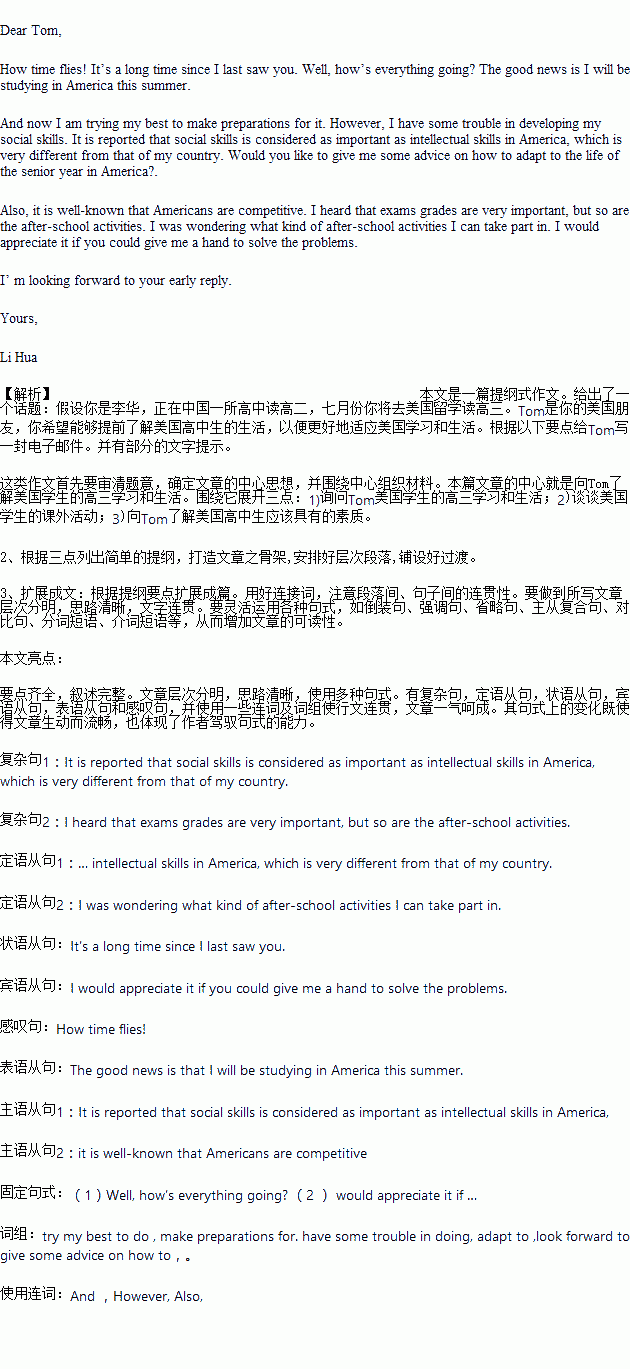ΧβΡΩΡΎ»ί
ΦΌ…ηΡψ «άνΜΣΘ§’ΐ‘Ύ÷–Ιζ“ΜΥυΗΏ÷–ΕΝΗΏΕΰΘ§ΤΏ‘¬ΖίΡψΫΪ»ΞΟάΙζΝτ―ßΕΝΗΏ»ΐΓΘTom «ΡψΒΡΟάΙζ≈σ”―Θ§ΡψœΘΆϊΡήΙΜΧα«ΑΝΥΫβΟάΙζΗΏ÷–…ζΒΡ…ζΜνΘ§“‘±ψΗϋΚΟΒΊ ”ΠΟάΙζ―ßœΑΚΆ…ζΜνΓΘ«κΗυΨί“‘œ¬“ΣΒψΗχTom–¥“ΜΖβΒγΉ”” ΦΰΘΚ
1Θ°―·Έ TomΟάΙζ―ß…ζΒΡΗΏ»ΐ―ßœΑΚΆ…ζΜνΘΜ
2Θ°ΧΗΧΗΟάΙζ―ß…ζΒΡΩΈΆβΜνΕ·ΘΜ
3Θ°œρTomΝΥΫβΟάΙζΗΏ÷–…ζ”ΠΗΟΨΏ”–ΒΡΥΊ÷ ΓΘ
ΉΔ“βΘΚ1Θ°¥ ΐΘΚ100Ήσ”“ΘΜ
2Θ°Ω… Β±‘ωΦ”œΗΫΎΘ§“‘ Ι––ΈΡΝ§ΙαΓΘ
____________________________________________________________________________________________
____________________________________________________________________________________________
____________________________________________________________________________________________
____________________________________________________________________________________________
____________________________________________________________________________________________
____________________________________________________________________________________________
____________________________________________________________________________________________
____________________________________________________________________________________________
____________________________________________________________________

